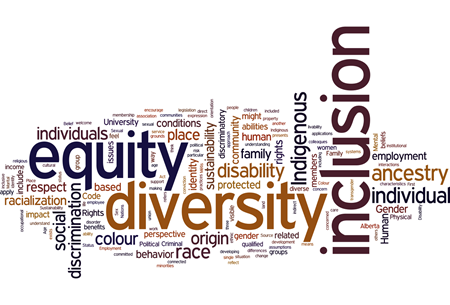

Like a lot of academics, many–even most–of my encounters with the DEI regime were less-than-satisfactory. Training sessions in unconscious bias and micro-oppressions that were typically ham-handed, lacking in subtlety, ideologically tendentious. The topics we were discussing were real ones, replete with philosophical dimensions begging to be explored, but the moral imperatives of the DEI regime required that we all come to a pre-ordained conclusion, along with pre-determined remedies (even the vocabulary we were to use had already been chosen for us). Among the many difficulties attending these sessions–besides the fact that it wasn’t always obvious the regime was interpreting the cases it was discussing accurately–was the fact that people with PhDs aren’t big fans of pre-packaged worldviews and instant remedies. The world is a complex, often ambiguous, place, especially where issues of race or gender or other factors collide with history and rights and customs and personal impact.
But I’ve also had experiences that have highlighted the significance of diversity. I preach at my church every other month or so, and several years ago was assigned a text from II Samuel. My seminary education had somehow avoided the book, and I’d never had an occasion to preach on it before. I realized that as much as I loved the Psalms, I had never really done a rigorous study of their author, and to preach my assigned text adequately I would need to get straight in my mind about the very complicated figure of David.
I won’t go into a lot of detail here about my conclusions, but let us say I wasn’t very fond of him, as a man, after my studies. This is difficult, as we’re famously told he was a man after God’s own heart, and his poetry indicates a deeply sensitive and spiritually vibrant individual. This is part of what makes him so perplexing and mesmerizing. He embodies that dilemma we see so often, where the artist and his or her art don’t seem to entirely cohere at the moral level. But my burden here is not to convince you to adopt my take on David.
I’m interested in the reactions I got from friends and church members when discussing him. To a man (literally), my male friends were not especially troubled by his most notorious moral failure, his relationship with Bathsheba and all that it entailed. It was not for them anything like a real dilemma. They didn’t come out and say so, but there was a definite “boys-will-be-boys” vibe coming from them when discussing the event. Even when disapproval was evident, the urgency lay in the direction of excusing him. And, just as importantly, in minimizing the harm to Bathsheba (for some reason Uriah rarely got mentioned, though I suspect he would have some thoughts, too). One friend, who I knew to be a sensitive, intelligent, morally conscientious person who thought a lot about the Christian life and who had a strong theological bent, was even perplexed that I was as bothered as I was by David’s conduct. “Don’t you think,” he asked me, “that Bathsheba felt honored to be called into the royal bedroom to please her king?” I was flabbergasted.
But then there were some other reactions, after I’d preached my sermon. The burden of my message was not David’s character, but my feelings had come through at several points, and during quiet moments I had several older women come up to me and all but whisper, “You know, I never did like that David very much!” I got the sense from talking with them that they’d never told a preacher about their feelings, probably had never discussed them with any man, and perhaps not with anyone. These were the Sunday-school-teaching backbones of the congregation: criticizing Bible heroes did not come naturally to them. I’d never had older church ladies level with me so honestly and vulnerably, on such a sensitive topic, and that, too, got my attention.
It got me thinking about how little we hear responsible, heartfelt, confessions like these. It made me wonder: Had these women and their husbands been doing this all their lives, sitting in the same pew, hearing the same sermons, reading the same Bible, but having such very different takes? And what of the all-too-human sexual improprieties that take place in the church, often involving leaders? If the church councils are entirely male, and have never heard women speak openly about such matters, how does that shape their reactions to a wayward pastor?
And, also: Is it possible–or should we expect–even spiritually wise and mature individuals to be able to anticipate what people whose lives they’ve never lived will feel in such circumstances? What experiences lay behind these women’s attitudes? Had they prayed and studied their way to their feelings about David, or had they come by them more existentially? They knew–I presume–what it was like to have a man who had power over you in some way take an inappropriate sexual interest in you. Perhaps some had known even more than that. How many men can say the same?
Can we afford not to have all these voices in the room when respected leaders–the Davids of our churches–behave in all-too-David-like ways? What else are we missing when our churches can’t hear what all the people think and feel about the events of our lives?